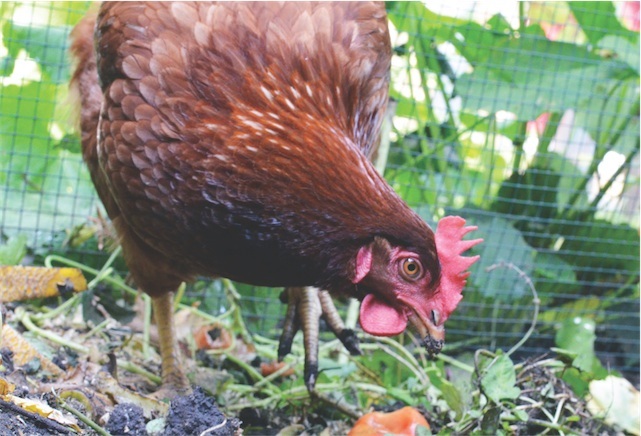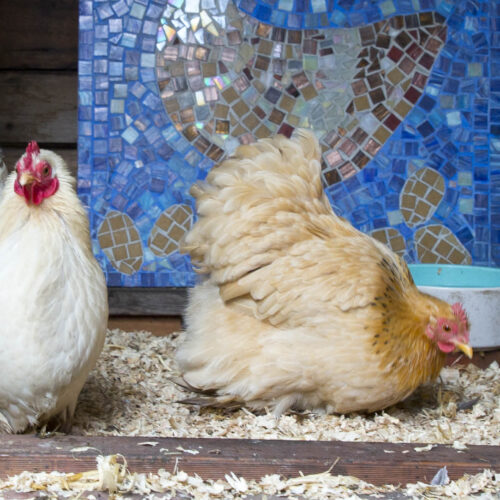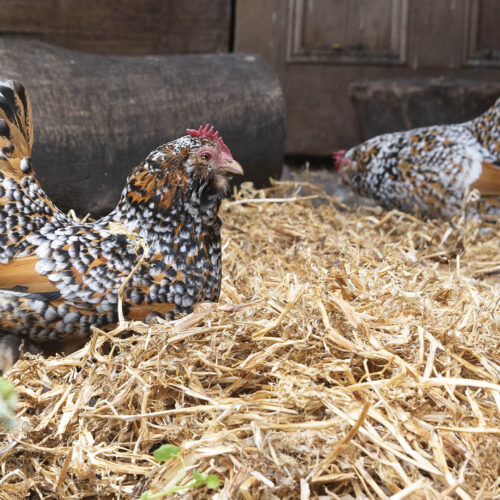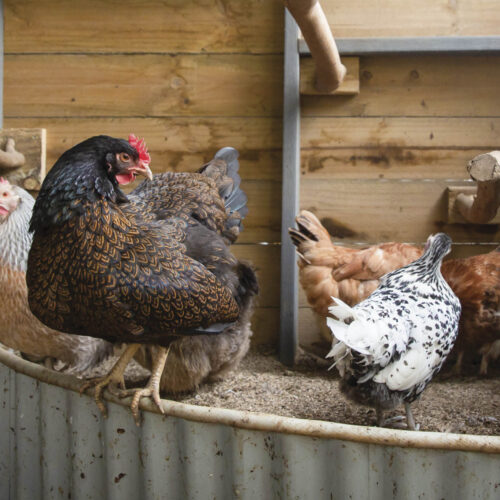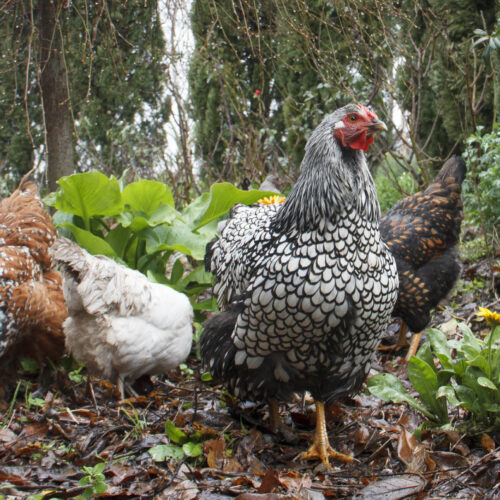Why keep chooks?
2014-11-04T01:59:11+11:00
JESSAMY MILLER looks at the benefits of keeping chooks.
Pets with benefits
Nothing sounds more like home than chickens clucking in the backyard. Chooks are pets with benefits. They are not just good company, but can provide you with eggs, fertiliser for the garden and even a roast or two.
Fresh eggs
There’s no comparison between fresh, home-grown eggs and their store-bought counterparts. Supermarket eggs can be weeks old before they even hit the shelves. Crack open a home-laid egg and you’ll find a round, plump orange yolk that sits up. The white will have a thicker layer around the yolk and a thinner outer layer, while stale, bought eggs have flatter yolks and watery whites.
Home-grown eggs are also packed with extra goodness. Studies in the US have found that free-range eggs have more vitamins A and E, beta carotene and omega-3 fatty acids than commercially farmed eggs.
Keeping hens for eggs will save you money, especially if you buy and eat organic food. It will also give you peace of mind. You’ll know the hens are being treated humanely and you can control their diet so they get no genetically modified feed or chemical exposure.
How many eggs will you get? The tally will depend on the breed of chicken, and how well the birds are managed.
Hybrid layers such as ISA Browns and Hy-Lines, the chooks that commercial egg farms use, will lay about 300 eggs in their first year. These birds are bred to lay hard for almost 18 months, then be despatched, so egg lay will drop off after that.
Crossbreds such as White Leghorn/New Hampshires or Australorp/New Hampshires are also good layers and eat less than the voracious ISAs. Expect them to lay for three to four years, with 270 eggs in the first year, and fewer in subsequent years.
Pure breeds with reputations for being reliable layers include Langshan and New Hampshire. Depending on breed, age and management, they will lay in the range of 120 to 200 eggs a year and can lay for up to six years. Fancy fowl such as Silkies and Pekins make adorable pets, but aren’t known for reliable laying. Some are also prone to going clucky, which stops them laying altogether, at least for a while.
Remember that birds take time off from laying during their annual moult and over winter, and will start laying again in spring. Hot weather can also put them off the lay.
Keeping birds healthy and feeding them the right diet with plenty of protein and shell grit also influences egg lay. Your chooks won’t lay every day of the year, but three hens would certainly keep the average family in good supply of fresh organic eggs. And if you’d like to be more self-reliant, consider breeding meat birds to eat and keeping layers for eggs, which will provide you with a lot of food from a small amount of space and investment.

